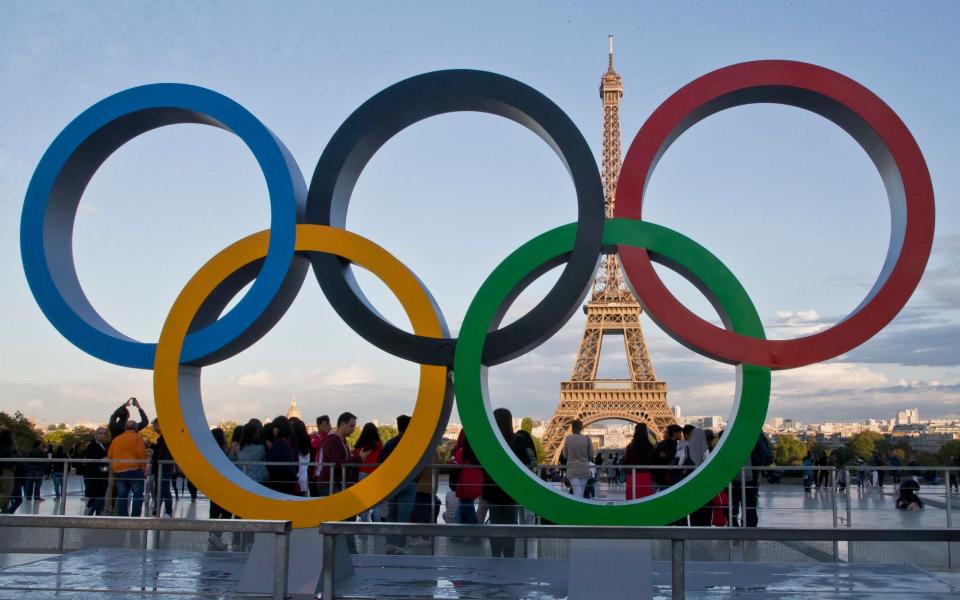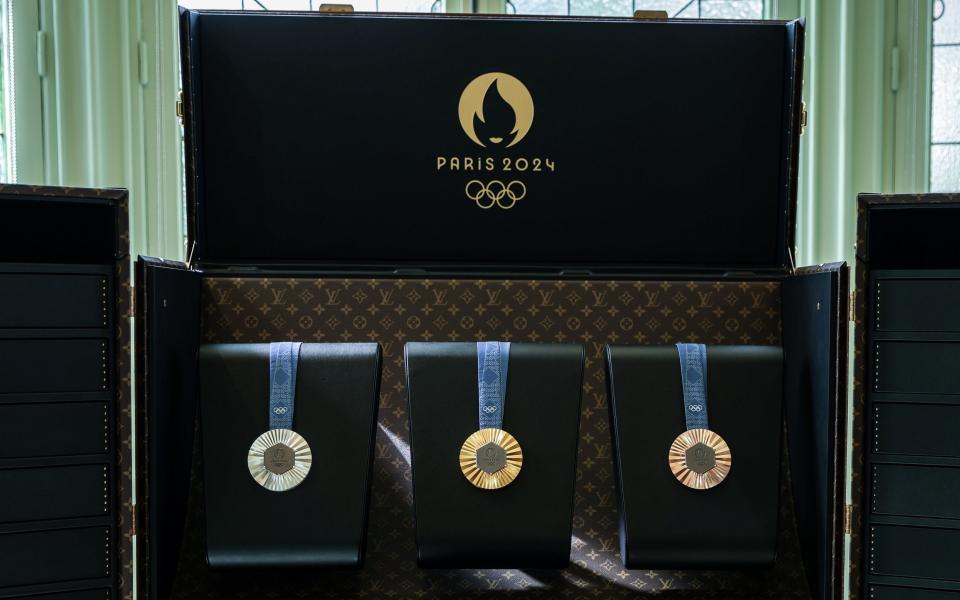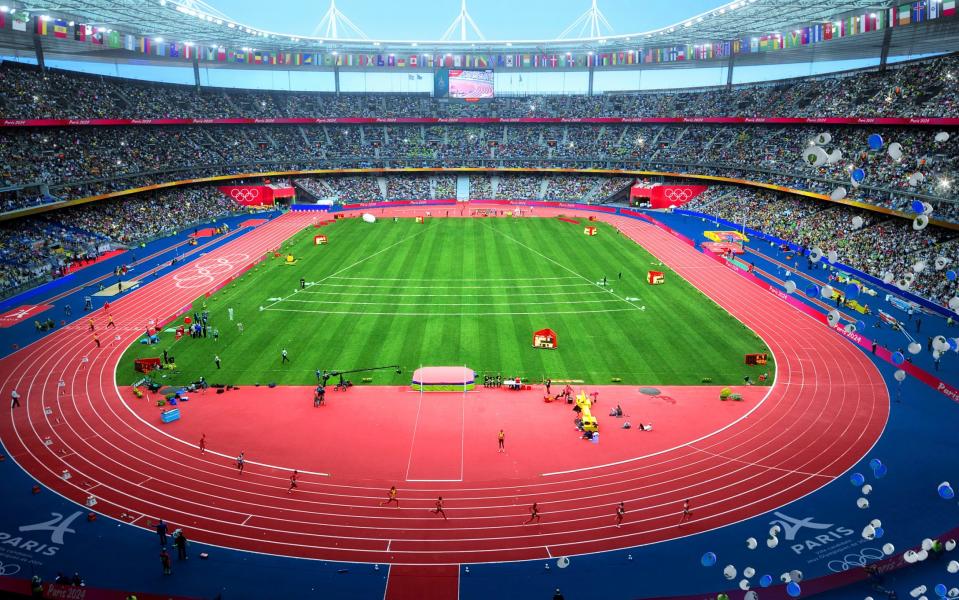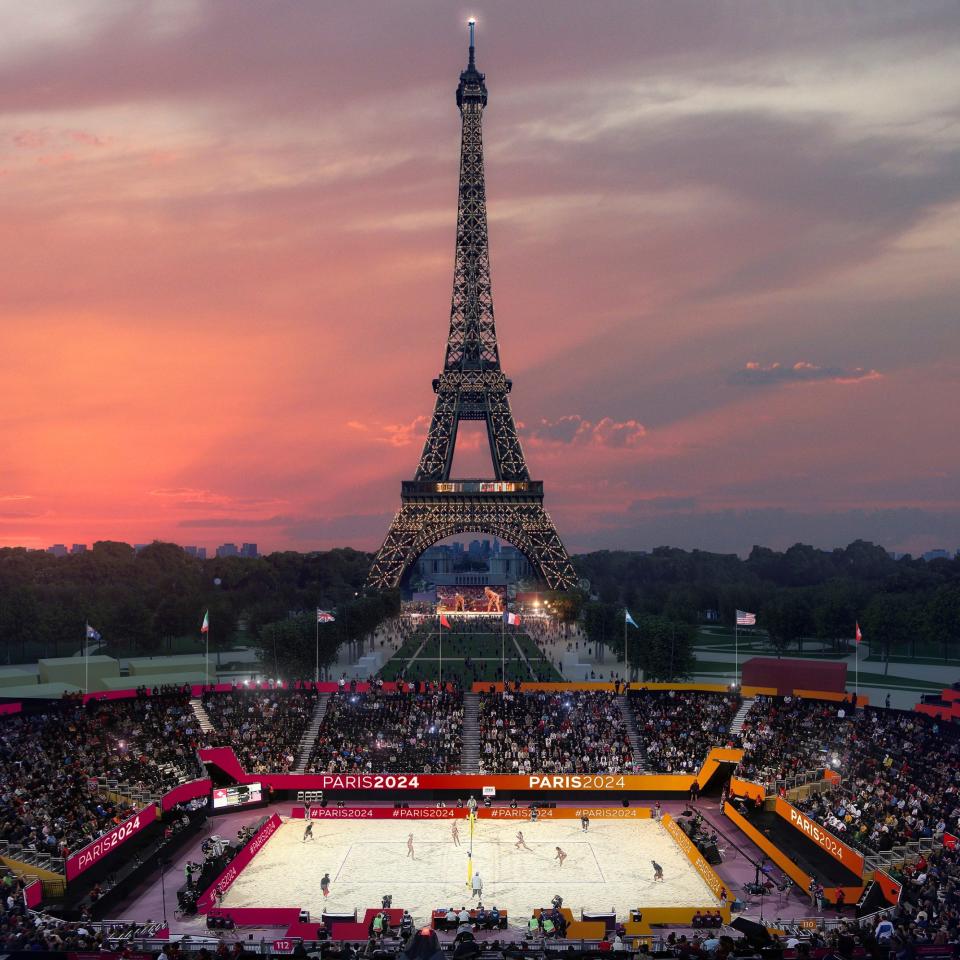[ad_1]

The 2024 Olympics will be in Paris, France. It is the third time the French capital has hosted the summer Games, the first being in 1900 and the second in 1924, exactly 100 years ago.
For the first time, this year’s Olympics will have an equal number of male and female athletes, and the same number of events for all.
To see the full day-by-day schedule click here.
Telegraph Sport has also published a guide to the British athletes competing at this summer’s Games and when Team GB’s kit will be unveiled.
When is the 2024 Olympics being held?
The 33rd Summer Olympic Games – or formally, the Games of the XXXIII Olympiad – will run from Friday, July 26, until Sunday, August 11.
When does the Paris Olympics start?
As is tradition, the opening ceremony will take place on Friday, July 26.
But four events actually start before the opening ceremony: archery, football, handball and rugby sevens, beginning on Wednesday, July 24.
When does the Paris Olympics end?
The Paris Olympics will end on August 11, with the traditional closing ceremony. There will also be 13 gold medals up for grabs on the final day.
Olympic sporting action lasts across 19 days, although the official period for the Paris Olympics is 17 days.
How many sports are there in the 2024 Olympics?
There will be 32 different sports contested at the Paris Olympics. This includes 28 mandatory ‘core’ sports plus a maximum of six optional sport, decided by the hosts. In the case of Paris, the four extra sports are breakdancing (breaking) – which will be making its Olympic debut – along with skateboarding, sporting climbing and surfing. The latter three made their debuts at Tokyo 2020.
More than 10,000 athletes from 206 nations are expected to take part in 329 events, across 45 sports disciplines.
How is Paris preparing for the Games?
By raising prices, primarily.
There was controversy in November when it was announced that fares on the Paris Metro are to double during the Games, to €4, unless you own a regular travel pass. The increased cost is to help pay for the extra transport needed. Among other price rises, the Louvre is increasing entrance fees from €17 to €22 (although the museum says this is not because of the Games). Hotel and AirB&B costs are also rocketing, with some rentals being offered at up to four times the usual rates for August.
Separately, Parisians living near the Seine face a lockdown during the opening ceremony, which will take place on and around the river, rather than in a stadium. Anybody who wants to shop, dine or visit friends in the area will have to register online and present a pass to be allowed through. There will also be a no-fly zone over Paris around the time of the opening ceremony, meaning no flights in and out of the city’s three main airports. Motorists will also be banned from the areas around the major venues.
Elsewhere in a worry for organisers, France’s largest public service union has issued strike notices for the entire period of the Games, with anger that the event is not resulting in higher wages or job security for workers.
Plus, the ‘alarming’ water quality of the River Seine leaves the prospect of there being no swimming component to an Olympic triathlon for the first time in history. Paris authorities believe that the situation will be significantly improved by a major new storm water facility due to be inaugurated later this month.
Olympic tickets: How to get them and how much they cost
There are a total of 10 million tickets for the Games, with British supporters set to be the largest fanbase outside of the home nation.
“Team GB is obviously coming in force with great expectation,” said Etienne Thobois, the chief executive of the Paris 2024 organisers. “We are more than happy to see the Brits coming to cheer for the athletes of the world. We are looking forward to welcoming you guys in Paris. It’s very close – less than three hours away (by Eurostar) and London 2012 is still in the memories of everyone. It was an inspiring Games for us too. Britain is the first market by far outside of France.”
One regret for the organisers will be the absence of the England women’s football team – and what would have been a large fansbase – after the Lionesses failed to secure qualification.
Tickets for the most popular Olympic events, including swimming and gymnastics, are sold out with only availability through special ‘hospitality packages’. Remaining opening ceremony tickets are available for around €2,700 (£2,300).
For ticket information visit the official website.
What are the Olympic medals made of?
This summer’s Olympics will mark 100 years since the last Games were hosted in Paris. To celebrate the return of the Games to France, each Olympic medal is embellished with an original iron piece of the Eiffel Tower. They were cut from girders and other bits that were swapped out of the Eiffel Tower during renovations, and then prepared for the medals by being stripped of paint, polished and then varnished.
The iron pieces’ hexagonal form represents the country, with the French sometimes referring to their country as ‘L’Hexagone’ due to its geographical shape.
The Eiffel Tower has also inspired the unique design of the ribbons for the medals, which each adorned with the lattice work of the famous landmark.
Paris jewelry house Chaumet designed the medals. Around the iron pieces of the Eiffel Tower are disks of gold, silver or bronze. The shine of the medals comes from the crinkled effect on the disks. Games organisers say the metal is recycled, not newly minted.

Meanwhile, those that are lucky enough to win a gold medal in athletics will also receive $50,000 (£39,380) from World Athletics, the first sport to offer prize money for an Olympic title.
What venues will be included and for which sports?
Grand Paris zone

Stade de France – Opening and closing ceremonies, rugby and athletics
Stade Olympique Colombes Yves-du-Manoir – Hockey
Arena 92 – Swimming, water polo
La Chapelle Arena – Badminton, gymnastics
Saint-Denis – Water polo, diving, artistic swimming
Le Borget – Shooting, sport climbing
Paris Centre zone
Parc des Princes – Football
Stade Roland Garros – Boxing, tennis
Paris expo Porte de Versailles – Indoor volleyball, basketball, table tennis, weightlifting
Paris-Bercy Arena – Artistic gymnastics and trampoline, basketball
Place de la Concorde – 3×3 basketball, breakdancing, BMX freestyle, skateboarding
Pont d’Iéna – Marathon swimming, marathon, race walk, cycling road race and time trial, triathlon
Champ de Mars – Beach volleyball
Grand Palais Éphémère – Judo, wrestling
Les Invalides – Archery

Versailles zone
Château de Versailles – Equestrian, modern pentathlon
Le Golf National – Golf
Élancourt Hill – Mountain biking
Vélodrome de Saint-Quentin-en-Yvelines – Track cycling, BMX, modern pentathlon (fencing)
Outer
Lille, Stade Pierre-Mauroy – Handball
Vaires-sur-Marne, National Olympic Stadium of Île-de-France – Rowing, Canoe-Kayak
Marseille, Stade Vélodrome – Football
Lyon, Parc Olympique Lyonnais – Football
Paris, Parc de Princes – Football
Bordeaux, Stade Matmut Atlantique – Football
Nice, Allianz Riviera – Football
Nantes, Stade de la Beaujoire – Football
Marseille, Port de la Pointe Rouge – Sailing
Tahiti, French Polynesia, Debarcadere Teahupoo – Surfing
Broaden your horizons with award-winning British journalism. Try The Telegraph free for 3 months with unlimited access to our award-winning website, exclusive app, money-saving offers and more.



